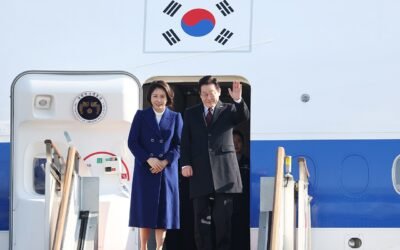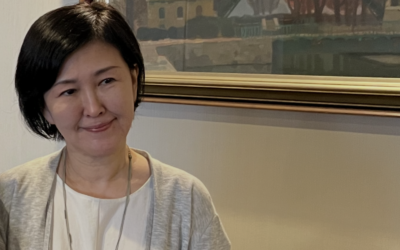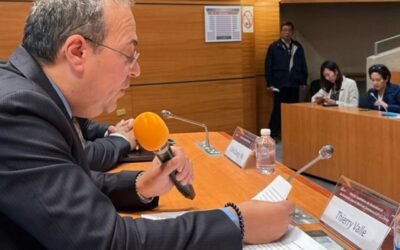In 1996, spiritual movements that had not supported the Kuomintang candidate in that year’s presidential elections were raided and persecuted.
by Tsai Cheng-An
Article 3 of 7.
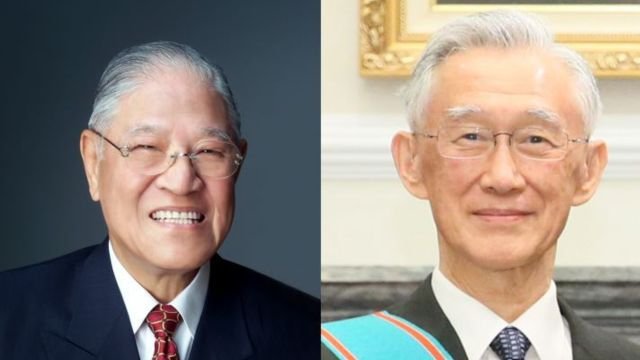
Taiwan’s authoritarian government lifted Martial Law on July 15, 1987, and Taiwan’s gradual transition to democracy began. The indispensable elements of a democratic system are: (1) a political order aimed at protecting human rights; (2) the principles of separation of powers and checks and balances, which constitute the system designed to prevent state power from persecuting its own citizens; (3) the independence of the judiciary (as opposite to judicial control by the executive power), which is needed both to gain the citizens’ trust and to protect human rights.
The period from 1987 to 2016 was defined by scholars as the post-authoritarian regime. At the beginning of this period, the administrative power was still dominant, the judiciary was still under the control of the executive, and the legislative independence was still insufficient. The protection of human rights did not form the core value of governance, and the culture of purging dissent of the authoritarian system was still prevalent. Taiwan, on the other hand, held its first presidential elections in 1996. The president was directly elected by the citizens, which was a key indicator that the country was entering the democratic system.
In that first presidential elections in Taiwan, held in March 1996, politicians were eager to enlist the support of religious groups, given the significant mobilization power they possessed. Some religions supported certain candidates during the process, which sparked a heated debate in Taiwan. The election was heavily contested but KMT’s Lee Teng-Hui (1923–2020), who had already been the president from 1988 on, was reelected with 54% of the popular vote. Those who supported the candidates who lost were repressed after the elections and paid a heavy price for their political choices.
Post-electoral punishment has been a constant of Taiwan’s post-authoritarian rule. Until 2016, almost every presidential election has seen the legal prosecution of defeated presidential candidates under various pretexts, from James Soong (b. 1942) in 2000 to Ma Ying-Jeou (b. 1950) in 2008, and Tsai Ing-Wen (b. 1956). After she lost the 2012 election, the future President was investigated for her role in the public investments in the company Yu Chang Biologics. Wong Chi-Huey (b. 1948), a world-famous scientist and former President of the Academia Sinica, Taiwan’s main cultural institution, was also accused of corruption for political reasons in 2016.
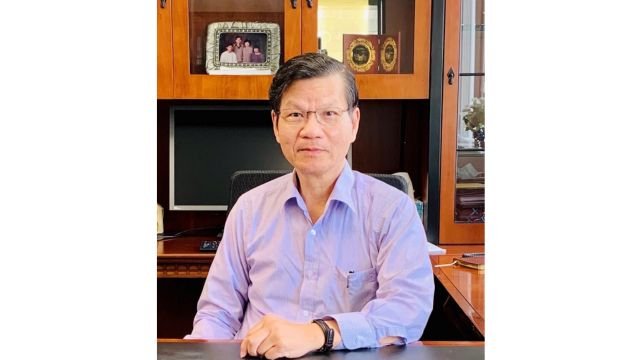
Following the 1996 elections, Taiwan witnessed a series of heinous major murder cases, including the murder of a girl at the Air Force Command Headquarters of the Ministry of National Defense, and the assassinations of politician Liu Bang-You (1942–1996), feminist activist and politician Peng Wan-Ru (1949–1996), and others. These major incidents have not been resolved to this date, and in 1996 they put enormous pressure on the ruling authorities. To divert public attention, the ruling party government carried out a political purge at the end of 1996. Liao Zheng-Hao (1946–2022), the Executive Yuan’s Minister of Justice, actively carried out a “religious crackdown” to purge dissidents. The crackdown was supported by the media, most of which were not independent from the ruling politicians.
Liao launched a comprehensive attack against dissident religious groups labeled as “xie jiao” including investigations, tax inspections by the National Taxation Bureau (NTB), assets seizure, demolitions of “illegal” structures, and exorbitant fines. This elaborate campaign required the mobilization of a large number of media, judicial organs, national tax authorities, and so on. Angry ex-members were encouraged to make vague accusations, each of which guaranteed a good three weeks of media headlines.
The groups targeted in 1996 included the Buddhist orders Fo Guang Shan and Chung Tai Shan (led by Venerable Master Wei Jue, 1928–2016), the Taiwan Zen Buddhist Association (later the Shakyamuni Buddhist Foundation), founded by Zen Master Wu Jue Miao-Tian (b. 1934), the menpai (similar to a “school”) of qigong, self-cultivation, and martial arts Tai Ji Men, rooted in esoteric Taoism, and the Sung Chi-Li Miracle Association, a Taiwanese new religion whose founder is Master Sung Chi-Li (b. 1948).
– Fo Guang Shan
Master Hsing Yun (1927–2023) of Fo Guang Shan had publicly supported Chen Lu-An (b. 1937), one of the candidates who lost the 1996 presidential elections. In February 1996, the “Taiwan Times,” a media outlet controlled by the ruling party, accused Fo Guang Shan of four violations of law: illegal constructions, excessive reclamation of land, pollution through garbage, and tax evasion. The “Taiwan Times” published titles such as “Fo Guang Shan Bullying and Many Evil Deeds,” “Fo Guang Shan Happy Dances and Lawlessness,” “Fo Guang Shan Tax Evasion Is an Open Secret,” and others that made shocking allegations. Protests from nearby residents were orchestrated, and the Fo Guang Shan monastery was closed for three years. It reopened in 2000.
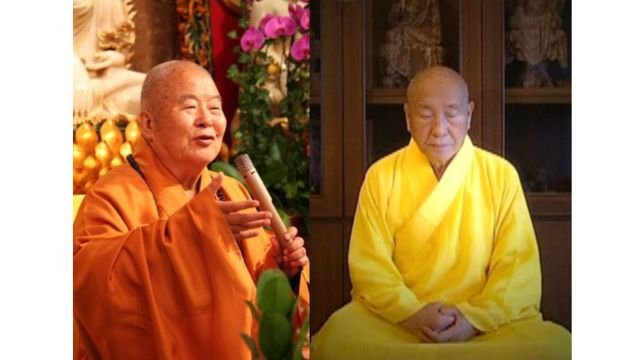
– Chung Tai Shan
Venerable Master Wei Jue of Chung Tai Shan had also supported Chen Lu-An, and his followers actively participated in collecting signatures for the candidate. Following the elections, Master Wei Jue was accused of seizing public land and tax evasion by the Taichung District Prosecutor’s Office. The lawsuit went through multiple judges for four years. In 2011, the High Court pronounced Master Wei Jue not guilty.
– Taiwan Zen Buddhist Association
In December 1995, Zen Master Wu Jue Miao Tian gathered 60,000 persons in Taoyuan. It was one of the largest gatherings in Taiwan’s history, and it drew the suspicious attention of the ruling authorities. Some politicians attended the event, including Chen Lu-An and Hsieh Chang-Ting (b. 1946), the vice-presidential candidate for the Democratic Progressive Party (DPP), which also eventually lost the elections to the KMT.
In the eyes of the KMT, Master Miao Tian was considered a supporter of Hsieh Chang-Ting. After the elections, he was indicted for fraud and tax evasion connected with the Columbarium Pagoda, the ossuary of the Tian Fo Temple. National Taxation Bureau (NTB) officials announced to the media that they were assessing the value of the ossuary, and that the net profit Master Miao Tian had derived from it was 1.2 billion yuan. “Only for the profit-making business income tax, and personal comprehensive tax, together with supplementary taxes and fines, we may recover more than 2 billion yuan, plus business tax, housing tax, and land value tax,” they announced. “It will be something out of this world.”
These statements by government bureaucrats incensed the public opinion, and the original case of fraud was transformed into one of alleged massive tax evasion. When the Zen Master asked a professional accountant to file administrative relief procedures with the NTB and obtain his organization’s tax file in accordance with the law, he discovered that the file contained only one newspaper clipping. Nonetheless, the campaign had placed the Zen Master under a significant financial and spiritual burden. Eventually, Master Miao Tian was exonerated from the main fraud charges connected with the ossuary but found guilty of illegal acquisition of property and tax evasion, and finally sentenced to a jail term of eight months with probation. He decided to settle the tax case and pay a part of what had been requested to be free from the NTB’s long-term entanglement.

– Sung Chi-Li Miracle Association
Master Sung Chi-Li of the Sung Chi-Li Miracle Association had also been at odd with local KMT Taipei politicians and had supported the defeated DPP vice-presidential candidate Hsieh Chang-Ting. After the elections, Sung was arrested for fraud in October 1996. He was convicted in 1997 and sentenced to seven years in jail, and the main temple of his Association was demolished by the police. The media depicted him as the quintessential “cult” leader defrauding his “victims.” In 2003, however, after a long legal battle, the Supreme Court overturned Sung’s conviction and stated that the Association’s activities were protected by the legal guarantees of religious liberty.
– Guanyin Famen
Emboldened by the initial success of their campaigns, politicians and prosecutors moved against another popular leader of a new religion, the Vietnam-born Supreme Master Ching Hai (b. 1950), the founder of Guanyin Famen. She was accused of amassing wealth through fraud and tax evasion and decided to leave Taiwan and establish her residence abroad.
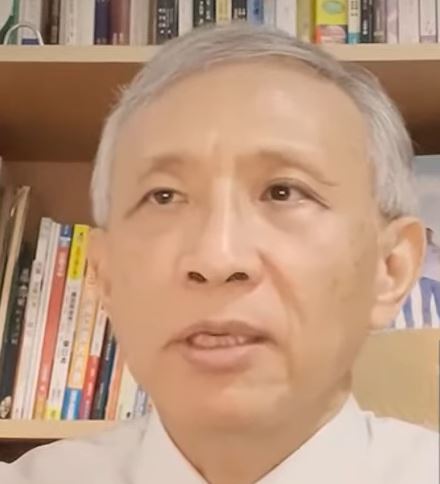
Tsai Cheng-An received his Ph.D. in Technology Management from National Chengchi University and his MS in Industrial Engineering from National Tsinghua University in Taiwan. He teaches innovation management, business model analysis, and new business development strategies at Shih Chien University, Taipei, Taiwan. Prior to his academic career, he had 18 years of practical experience in the industry, and his research interests are in decision making, business model innovation, and corporate entrepreneurship, as well as in the area of transitional justice and freedom of religion or belief. He has published in the International Journal of Entrepreneurial Behaviors & Research (SSCI), Technology Analysis and Strategic Management (SSCI), Logistics (SCIE), Management Review (TSSCI), Journal of Management (TSSCI), Sun Yat-sen Management Review (TSSCI), Journal of Science and Technology Management (TSSCI) and Forum for Industry and Management (TSSCI).

